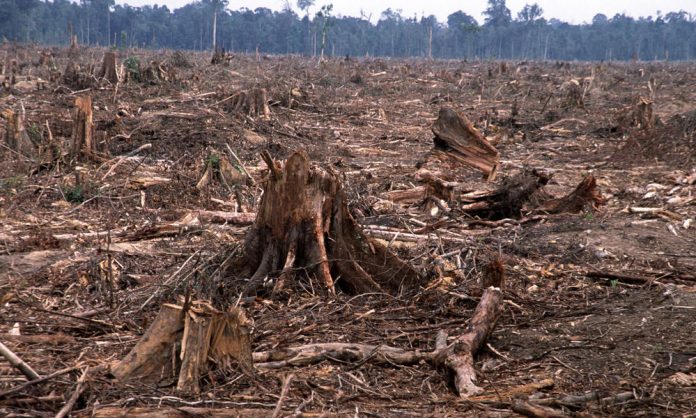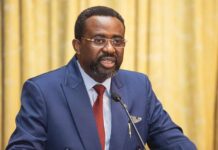Ghana has committed to restoring one million hectares and to have about two million hectares of its degraded and deforested land restored by the year 2030 under a number of international agreements and conventions relevant for Forest Landscape Restoration (FLR).
In order to meet these commitments, particularly under the Bonn Challenge, Ghana has developed a comprehensive Forest Plantation Strategy to establish and manage 625,000 hectares of forest plantations and conduct enrichment planting of 100,000 hectares of existing forest plantations as well as maintain and rehabilitate an estimated 235,000 hectares of existing forest plantations.
Mr. Tabi Agyarko, a Director of the Ministry of Lands and Natural Resources made the disclosure at a National Validation Workshop of Ghana’s Country Report on Smallholder Forest Landscape Restoration (FLR) in Accra under the auspices of the International Tropical Timber Organization ( ITTO) and facilitated by the Forest Research Institute of Ghana (FORIG).
Mr. Agyarko said as part of the strategy, the country was also to facilitate the incorporation of trees within farming systems covering 3.75 million hectares of agricultural landscapes and that these development priorities were in line with the Sustainable Development Goals (SDGs) 13 and 15 aimed at addressing the issues of Climate Change, environmental and natural resources.
He said for that purpose, a number of initiatives were underway including the Forest Investment Programme, (FIP) National Forest Plantation Development Programme (NFPD), Ghana Cocoa Forest REDD+Programme (GCFRP) Ghana Shea Landscape Emission Reduction Project (GSLERP) and the Landscape Restoration and Small-Scale Mining Project (GLRSSMP) among others.
Dr. Lawrence Damnyag, a national Expert of FORIG said Ghana had lost over 60% of its forest cover totalling 2.7 million hectares between 1950 and now with a deforestation rate of about 2% per annum for the country while that of the high forest zone alone was about 3.2%.
He said the National Validation Workshop was consequent to the Regional efforts by 6 West African countries including Benin, Cote d’ Ivoire, Ghana, Liberia, Mali and Togo to the implementation of Forest Landscape Restoration in the fight against forest degradation and deforestation in the Sub-region which led to an IITO led Regional Workshop in Lome, Togo in November 2019.
Dr. Joseph Appiah-Gyapong, of the Forestry Commission Ghana, said the role of Smallholder plantations in the battle for the restoration of the forest were most critical and that efforts must be made to assist and encourage Smallholder plantation owners at all times.
The National Validation Workshop with participants from Smallholder plantation Owners, Government Officials, ITTO Focal Person and FORIG Expert, was aimed at identifying which of the recommendations for Smallholder FLR developed during the regional workshop in Lome, Togo in 2019 were most appropriate and promising for Ghana.










